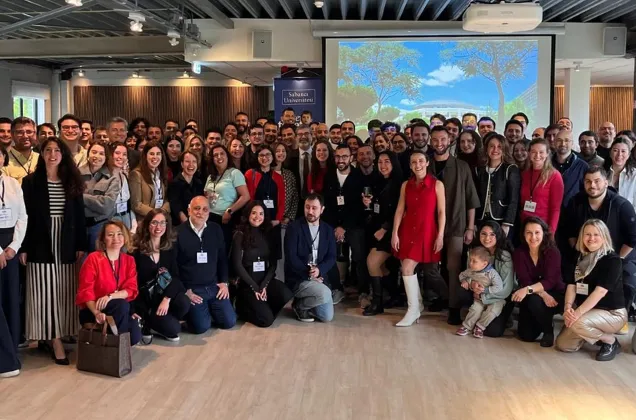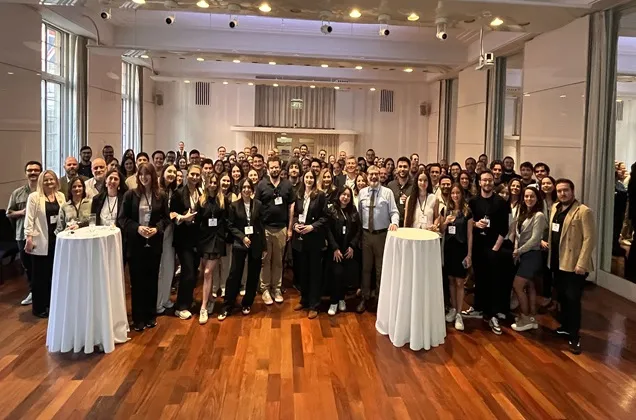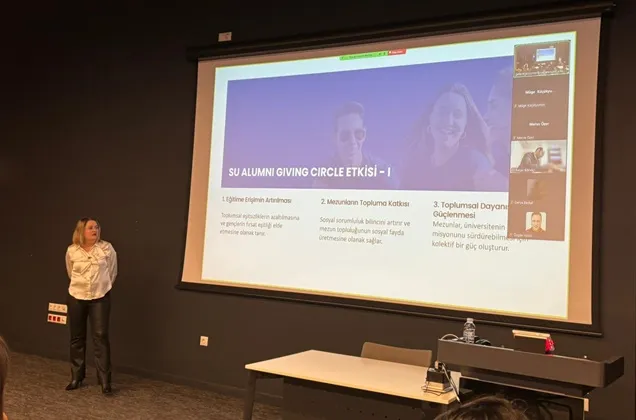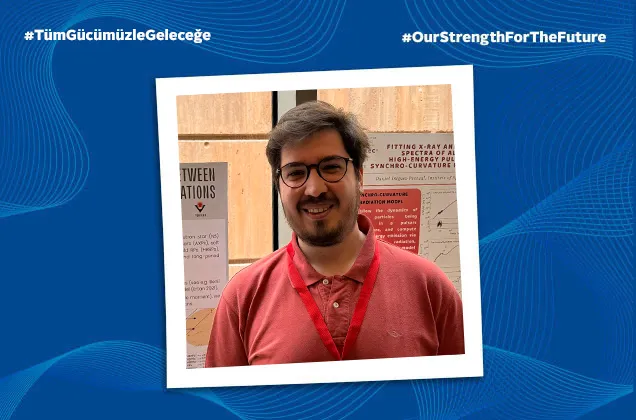10/02/2014
Canan Dağdeviren (M.Sc. in Materials Science and Engineering, 2009) is coming under limelight in the United States with her successful work.

Canan Dağdeviren is working on flexible and bendable electronic devices that can be implanted into the body or on the skin. Her work extends across physics, electronics, chemistry, materials, mechanics and medicine.
Dağdeviren was the top of the list in her field to be entitled to a Fulbright Doctoral Fellowship, which was given for the first time in Turkey in 2009, and was admitted to the Material Science and Engineering Department of The University of Illinois at Urbana, Champaign.
Her work, published in the prestigious American journal 'Proceedings of the National Academy of Sciences of the United States of America (PNAS),' explains a flexible, ultra-thin device that generates electricity with the motion of the heart, lungs and diaphragm, and can store that energy.

Dağdeviren says that her work in the cardiology center of the Arizona State University hospital yielded good results on sheep, calves and pigs –animals that have hearts that are comparable in size to humans– and that the energy generated from the motion of internal organs was sufficient to run a cardiac pacemaker.
Dağdeviren continued, “This technology stands to disrupt the existing technology, which is cumbersome, costly, and has no mechanical affinity to the heart whatsoever. Being fully flexible and bendable like paper, the device ensures a close fit with curvaceous organs. This provides an energy-efficient system that does not hinder the natural motion of the organs.”
Patented by Dağdeviren this week, the device was covered by a multitude of news media, including Smithsonian Magazine, Popular Mechanics, CBS News, LA Times, BBC News, Chemical and Engineering News, New Scientist, and Chemistry World.
Dağdeviren’s idea won her the “International Maria Pia” prize of USD 10,000 in 2012 among 40,000 students. Starting July, Dağdeviren will work on artificial skin and organs at the Harvard Medical School.
Dağdeviren’s outstanding achievement will make it possible to replace clogged vessels or failing hearts. The parts developed by Dağdeviren will be fully functional, and be able to generate their own energy by reading parameters that include pressure, temperature and blood flow.
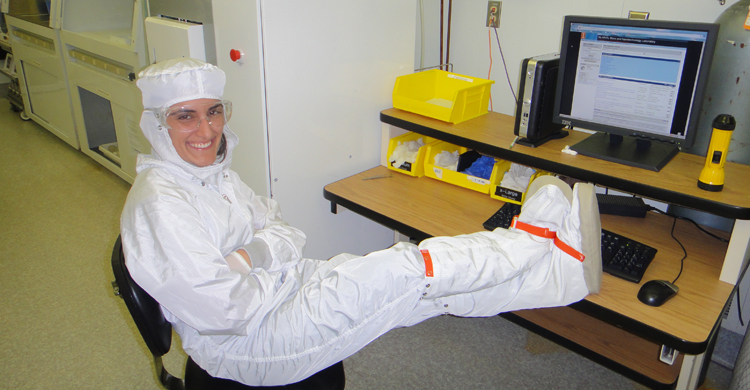
Source http://www.amerikaliturk.com/news/manset/55992-canan-dagdeviren-abdde-is...

